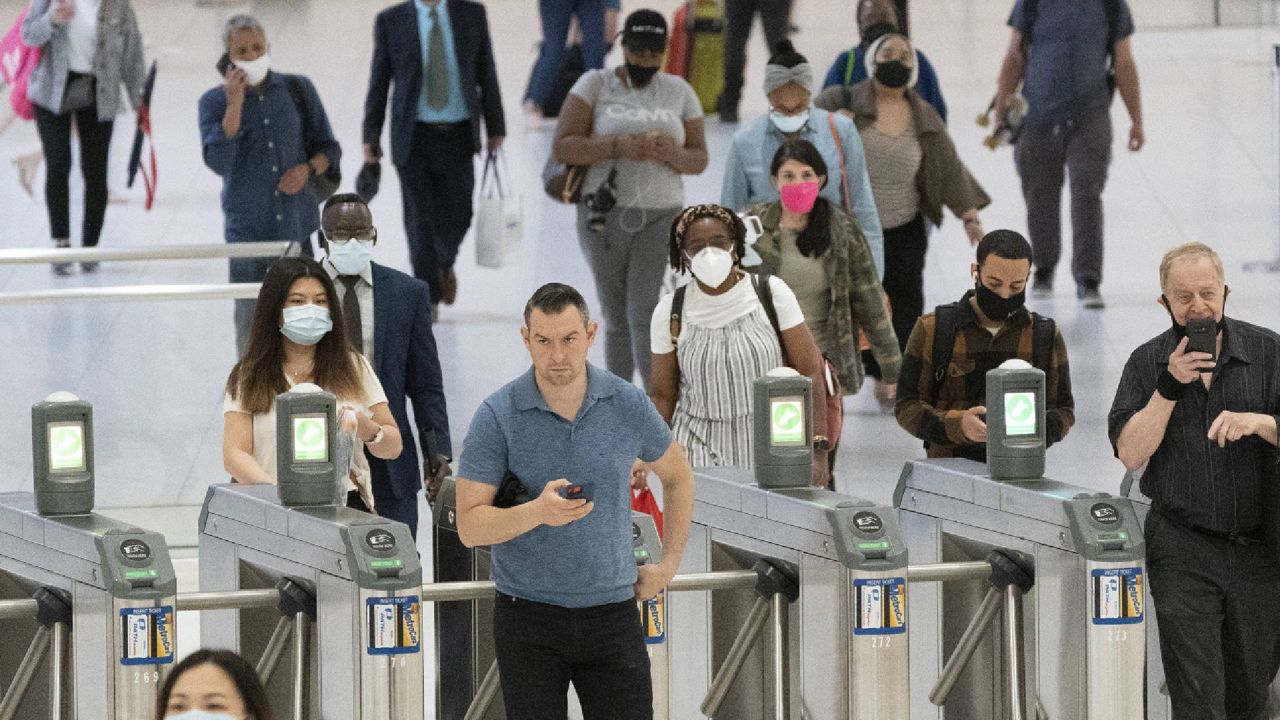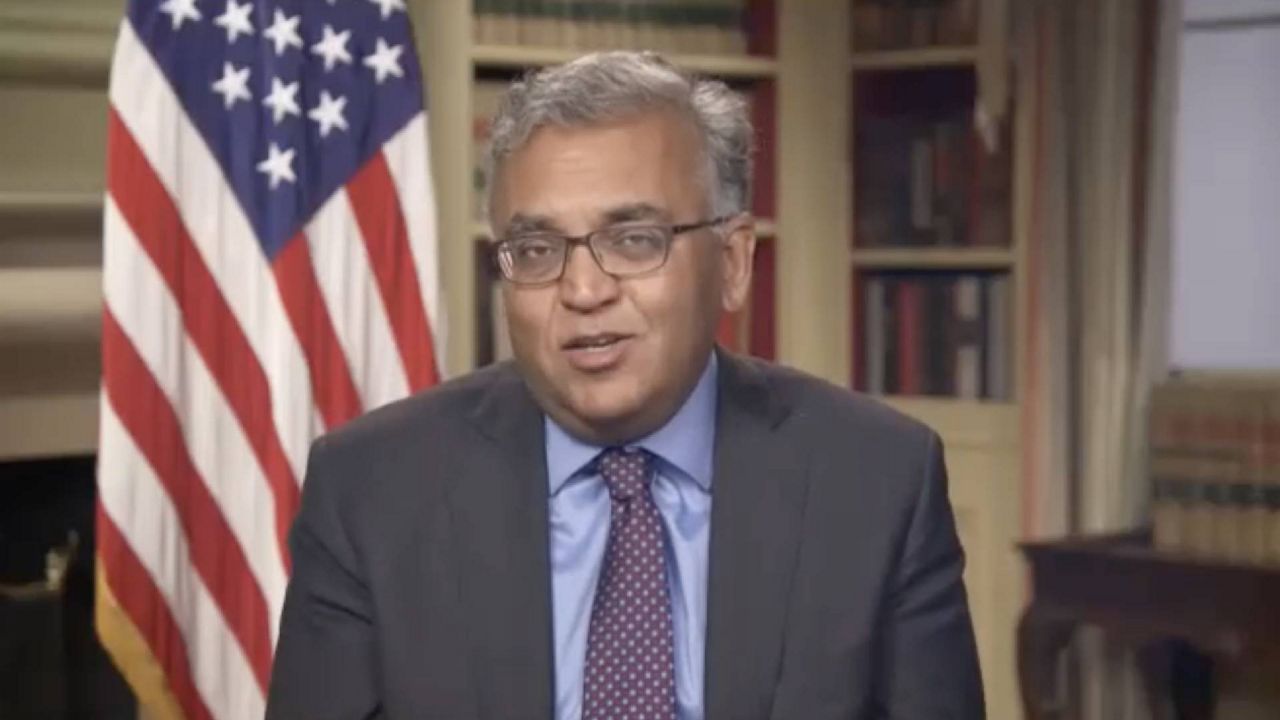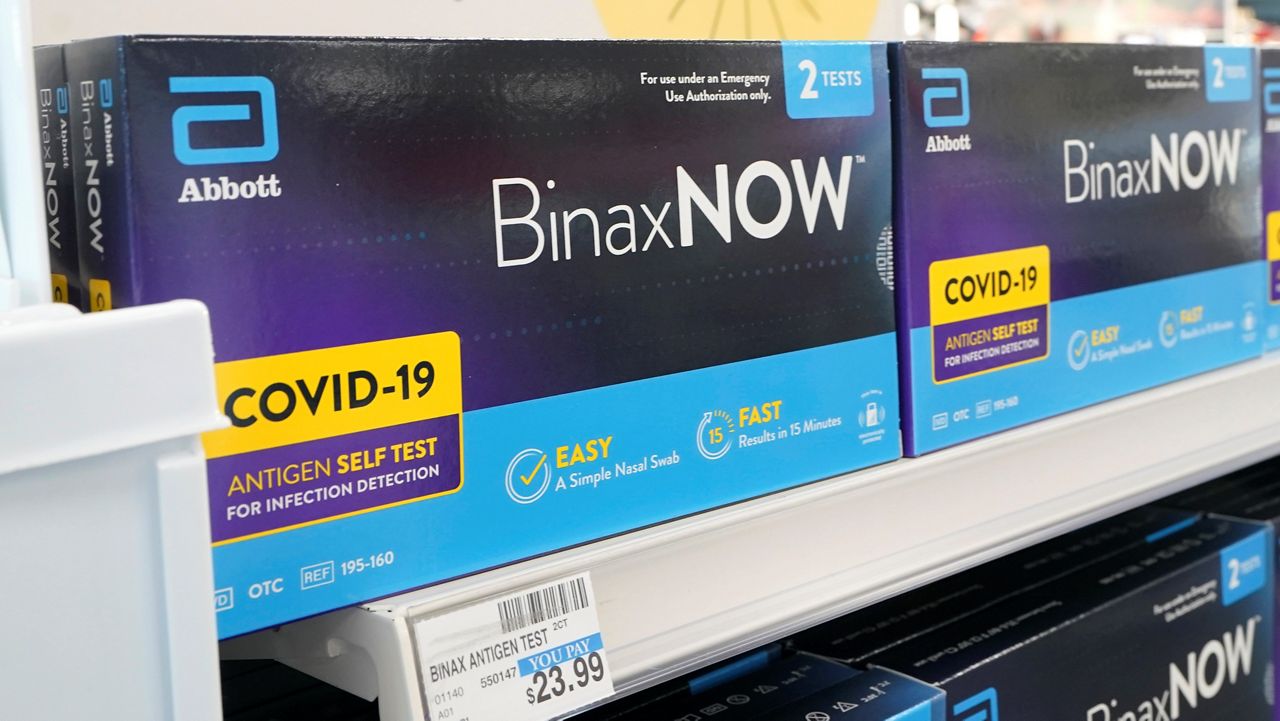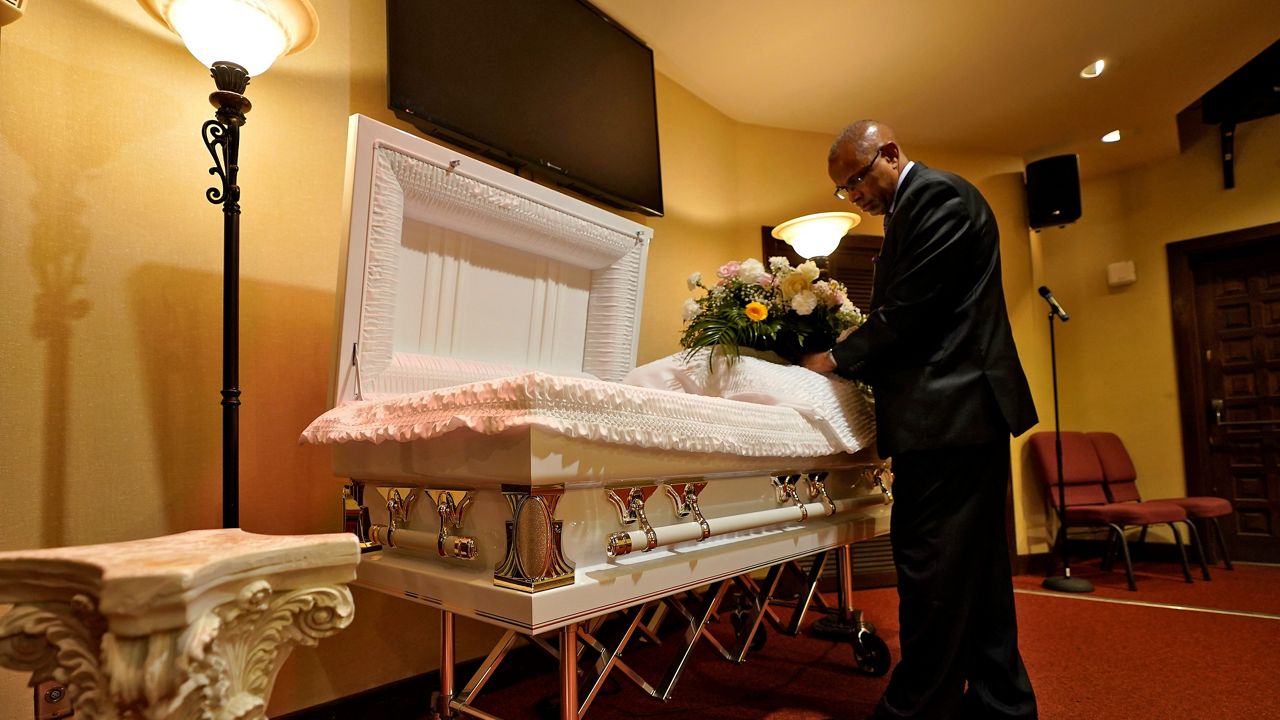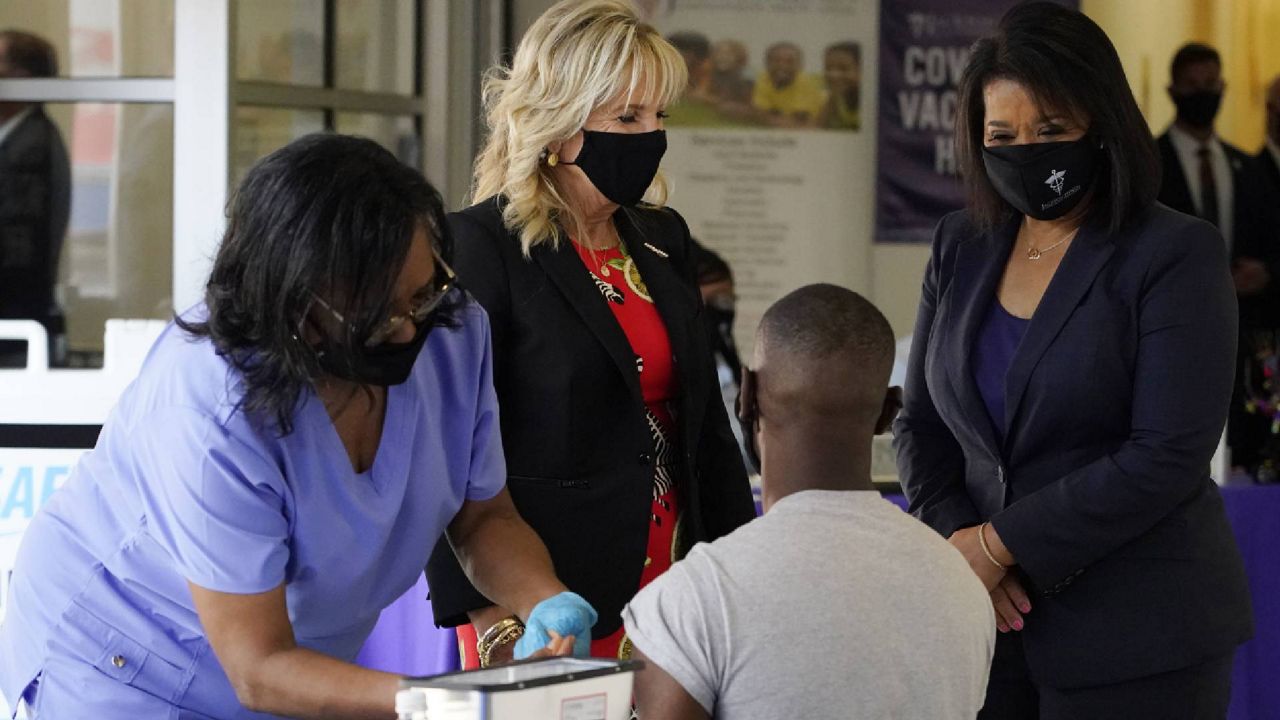When Mike Schreurs heard his 130-person marketing firm would be included in a new corporate vaccine mandate, he was initially worried about broaching a topic he’d never had to address with his employees before.
“Our first thought was: there's probably going to be some people who don't want to do that,” Schreurs, the chairman of Des Moines-based Strategic America, told Spectrum News.
And he's concerned the vaccine requirement might actually push talented people elsewhere, like to a company with fewer than 100 employees that doesn’t have to follow the rule.
Unlike major food processors or airlines with thousands of employees to keep things running, Schreurs’ firm is by all accounts a small business — and in direct competition with similar ones.
“We're in the middle of a talent war, if you will, a talent battle to attract more people and to fulfill the responsibilities that we have as an agency,” he explained.
President Joe Biden’s announcement in early September that companies with 100 people or more must soon require vaccines or weekly testing could put smaller businesses in a tough position, because following the law might also mean bearing a heavier, proportionate cost if people don’t comply.
The corporate vaccine mandate is not yet an official rule, but it’s expected within a matter of weeks from the Occupational and Safety Health Administration, an agency within the Department of Labor meant to ensure the safety of employees in the workplace.
The Biden administration estimates it will apply to 80 million workers at thousands of private businesses around the country.
OSHA is working more quickly than usual to outline the details of the “emergency temporary standard” (ETS), since its usual rulemaking process can take more than seven years, on average, according to a government report.
“You have to get it right. And you have to have proper standards that employers can follow and comply with,” said Lawrence Gostin, a leading health law expert and professor at Georgetown University School of Law.
“I think that we're on [a] fast track and I expect to see it soon,” he added, saying he expects the final ETS within two to three weeks.
A spokesperson for OSHA did not respond to multiple requests for comment, including questions about a timeline and how business owners should prepare.
“I can't give you a timeline. OSHA is working on them,” White House press secretary Jen Psaki said last week. “Hopefully we'll know more in the coming weeks.”
The rule will allow employees to get tested weekly for COVID-19 in place of vaccination, though the cost of testing could fall to employers. There will also be select religious exemptions and medical exemptions, such as for those who are allergic to the vaccine.
Still, the new standard will quickly be met with legal challenges from several Republican governors and officials who say the president doesn’t have the authority to mandate vaccines.
“That is outside the role of a president to dictate to individuals what their personal health is going to look like,” said Texas Attorney General Ken Paxton in an interview with former Trump adviser Steve Bannon.
“@JoeBiden see you in court,” South Dakota Gov. Kristi Noem wrote on Twitter.
Gostin told Spectrum News that President Biden is in fact “acting within the height of his authority,” granted by Congress in 1970 under the Occupational Safety and Health Act, which gives administrations the power to set national standards in the workplace.
“There's no reason why a safety measure like a vaccine, which is safe and effective, shouldn’t be used,” said Gostin, also author of the new book “Global Health Security: A Blueprint for the Future.”
“An infectious disease is just as hazardous, if not more, than a workplace injury,” he added.
Gostin also noted, however, that the OSHA rule shouldn’t apply to people who are not working in-person: “That would be entirely unnecessary.”
“While we strongly encourage everyone to get vaccinated, making business police individual behavior could have adverse effects, particularly when it comes to business penalties and regulatory burdens,” wrote Todd McCracken, president of the National Small Business Association, after the initial announcement, highlighting “potential unintended negative consequences.”
Companies are also just confused about what the mandate will entail, including possible legal fees, said Alison Pepper, Executive Vice President of Government Relations for the American Association of Advertising Agencies.
“There are costs to the mandate that could fall harder on [small businesses] as the initial costs might not scale,” she said.
Schreurs said he’s heard rumblings throughout his company as they await the vaccine mandate, but he’s waiting to hear details of the rule before he sets any red lines.
“No one likes mandates, frankly,” he said. “But I don't imagine us to be doing anything other than abiding under the law and encouraging our employees to do what's right for them and their families.”
Asked whether he would fire an employee who refuses to follow the OSHA standard, Schreurs said he wasn’t ready to go there yet.
“That pushes me into a corner I really don't want to be in,” he said.




